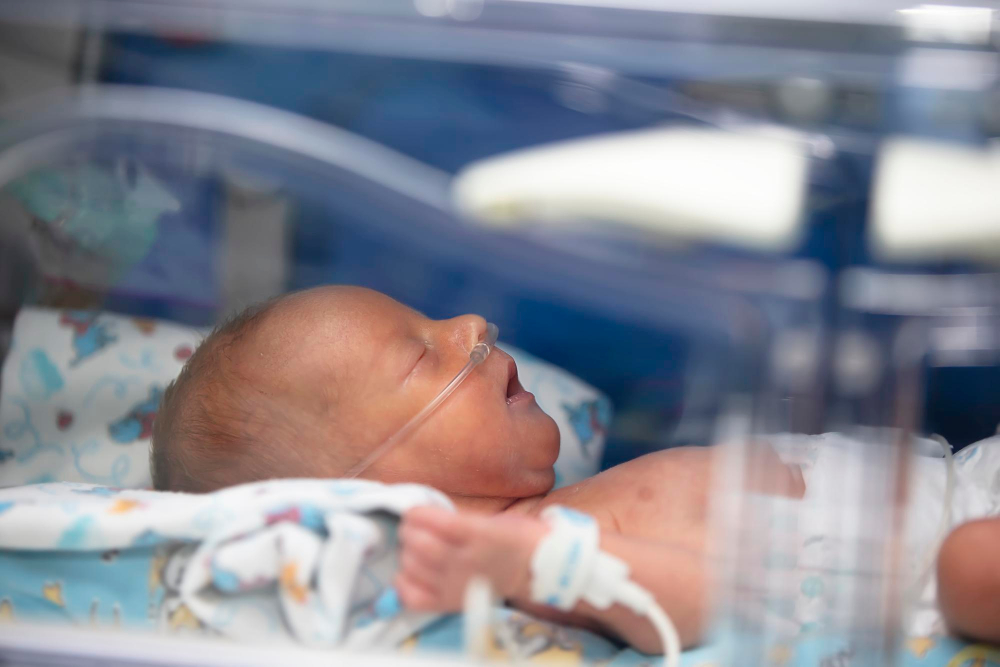Introducing the dangers of alcohol consumption during pregnancy – a topic of utmost importance for expecting mothers. In this blog post, we delve into the risks associated with drinking alcohol during pregnancy, highlighting its potential impact on fetal development. We also explore the alarming alcohol-related disorders that newborns may face as a result. Furthermore, we shed light on the long-term effects that children exposed to alcohol in the womb may experience as they grow older. Finally, we suggest safe and healthy alternative beverages for pregnant women to ensure the well-being of both mother and child. Join us as we uncover the truth behind alcohol and pregnancy.

Drinking alcohol during pregnancy can pose serious risks to both the mother and the developing fetus. It is widely known that alcohol consumption during pregnancy can lead to a range of physical and cognitive birth defects in the baby. The risks associated with drinking alcohol during pregnancy are not only limited to the period of gestation but can also have long-term effects on the child's health and development.
The most severe consequence of drinking alcohol during pregnancy is a condition called Fetal Alcohol Spectrum Disorders (FASDs). FASDs encompass a range of physical, behavioral, and intellectual disabilities that can occur due to prenatal alcohol exposure. These disabilities can include facial abnormalities, growth deficiencies, learning difficulties, and problems with memory and attention span.
Moreover, drinking alcohol during pregnancy increases the risk of miscarriage, stillbirth, premature birth, and low birth weight. It can also lead to developmental delays, impaired language and social skills, and an increased susceptibility to mental health disorders in the child. These long-term effects highlight the importance of avoiding alcohol during pregnancy.
| Facial Abnormalities | Growth Deficiencies | Learning Difficulties |
|---|---|---|
| Facial abnormalities such as a smooth ridge between the upper lip and nose, small eye openings | Growth deficiencies resulting in a smaller head size and below-average height and weight | Learning difficulties including poor academic performance and trouble with attention and memory |
| Problems with Memory and Attention Span | Risk of Miscarriage | Stillbirth |
| Problems with memory, attention span, and ability to process information | Pregnancies affected by alcohol use have an increased risk of miscarriage | Stillbirth can occur due to alcohol-related complications during pregnancy |
| Premature Birth | Low Birth Weight | Developmental Delays |
| Babies born to mothers who drink during pregnancy are more likely to be born prematurely | Alcohol use during pregnancy can result in low birth weight | Children exposed to alcohol in the womb may experience delays in reaching developmental milestones |
| Impaired Language and Social Skills | Increased Susceptibility to Mental Health Disorders | |
| Difficulties in language development, poor social skills, and trouble regulating emotions | Children exposed to alcohol in utero have a higher risk of mental health disorders, such as anxiety and depression |
Alcohol consumption during pregnancy has long been known to have detrimental effects on the developing fetus. The risks associated with drinking alcohol during pregnancy are significant and can have lifelong consequences for the child. It is essential for expectant mothers to understand the impact that alcohol can have on fetal development and take necessary precautions to ensure the health and well-being of their unborn baby.
Firstly, it is important to highlight that alcohol is a teratogen, a substance that can cause birth defects. When a pregnant woman consumes alcohol, it easily crosses the placenta and reaches the developing fetus. The developing organs of the fetus, particularly the brain, can be severely affected by the toxic effects of alcohol. Prenatal exposure to alcohol can result in a range of physical, behavioral, and cognitive abnormalities collectively known as Fetal Alcohol Spectrum Disorders (FASD).
Research has shown that drinking alcohol during pregnancy increases the risk of miscarriage, stillbirth, and premature birth. The consumption of alcohol can also lead to low birth weight and growth retardation in the fetus. These physical consequences can have long-lasting effects on the child's overall health and development.
| Risks of Alcohol on Fetal Development | Impact of Alcohol on Fetal Development | Alcohol-Related Disorders in Newborns |
|---|---|---|
| Increased risk of miscarriage, stillbirth, and premature birth | Physical, behavioral, and cognitive abnormalities | Birth defects and developmental delays |
| Low birth weight and growth retardation | Learning difficulties and memory problems | Impaired motor and social skills |
In conclusion, the impact of alcohol on fetal development is significant and can have lifelong consequences. It is of utmost importance for expectant mothers to avoid alcohol during their pregnancy to ensure the health and well-being of their unborn baby. Understanding the risks associated with alcohol consumption during pregnancy and promoting alcohol-free environments are vital steps in safeguarding the future of our children.
Alcohol-related disorders in newborns, also known as fetal alcohol spectrum disorders (FASDs), are a group of conditions that can occur in babies whose mothers consumed alcohol during pregnancy. These disorders can have a range of effects on the newborn's physical, mental, behavioral, and cognitive development. FASDs are preventable and are entirely avoidable if women choose not to drink alcohol during pregnancy.

One of the most well-known alcohol-related disorders in newborns is fetal alcohol syndrome (FAS). Babies with FAS may have distinct facial features, such as a small head, flattened midface, and thin upper lip. They may also experience growth deficiencies, vision and hearing problems, and intellectual disabilities. However, it's important to note that FAS is the most severe form of FASD, and many children with alcohol-related disorders may not present with these distinct physical characteristics.
Another alcohol-related disorder in newborns is alcohol-related neurodevelopmental disorder (ARND). Children with ARND may not have characteristic facial features, but they can experience difficulties with attention, learning, memory, and problem-solving abilities. They may also struggle with impulse control and exhibit behavioral problems, making it challenging for them to succeed academically and socially.
| Alcohol-related disorders in newborns | Effects on newborn's development |
|---|---|
| Fetal Alcohol Syndrome (FAS) | Distinct facial features, growth deficiencies, vision and hearing problems, intellectual disabilities |
| Alcohol-related Neurodevelopmental Disorder (ARND) | Difficulties with attention, learning, memory, problem-solving abilities, impulse control, behavioral problems |
Exposure to alcohol during pregnancy can have long-term effects on children. The prenatal period is a critical time for the development of the baby, and any substance consumed by the mother can potentially impact the fetus. Alcohol is especially harmful as it can cross the placenta and reach the developing baby, affecting its growth and development.
One of the long-term effects of alcohol exposure in the womb is fetal alcohol spectrum disorders (FASDs). FASDs are a range of physical, behavioral, and intellectual disabilities that can occur in individuals whose mothers drank alcohol during pregnancy. These disabilities can persist throughout the child's life, causing challenges in various aspects of their development.
Children with FASDs may experience physical abnormalities such as growth deficiency, facial anomalies, and heart defects. These physical characteristics can vary in severity but often serve as telltale signs of alcohol exposure during pregnancy. Additionally, children with FASDs may also exhibit behavioral and cognitive impairments, including learning disabilities, poor impulse control, attention deficits, and difficulties with memory and problem-solving.
It is important for expectant mothers to understand the risks associated with drinking alcohol during pregnancy. Even moderate or occasional alcohol consumption can have detrimental effects on the unborn child. To mitigate these risks, it is best for pregnant women to abstain from alcohol entirely. Instead of alcoholic beverages, pregnant women can opt for alternative beverages such as water, herbal teas, or fruit juices to ensure their own and their baby's well-being.
| Physical Abnormalities | Behavioral and Cognitive Impairments |
|---|---|
| Growth deficiency | Learning disabilities |
| Facial anomalies | Poor impulse control |
| Heart defects | Attention deficits |
Pregnancy is a time when expectant mothers need to pay close attention to their diet and avoid certain substances that can harm the growing fetus. One such substance is alcohol. While it is well-known that consuming alcohol during pregnancy can have detrimental effects on the baby's development, many women may wonder if there are any safe alternatives to enjoy during this special time. Fortunately, there are a variety of non-alcoholic beverages that pregnant women can indulge in without worrying about harming their baby.

One popular alternative to alcoholic beverages for pregnant women is mocktails. These are delicious and refreshing drinks that mimic the flavors and presentation of cocktails, but without the alcohol content. Mocktails are made using a combination of fruity juices, soda, and other non-alcoholic ingredients, blended together to create a tasty and satisfying beverage. With a wide range of flavors and creative combinations available, pregnant women can still enjoy the ritual of sipping a fancy drink without compromising their baby's health.
Another alternative beverage option for pregnant women is herbal tea. Herbal teas come in various flavors and can offer numerous health benefits. However, it is important to note that not all herbal teas are safe to consume during pregnancy. Some herbal teas, such as chamomile and peppermint, are considered safe in moderation during pregnancy and can provide soothing effects for common pregnancy discomforts like nausea and heartburn. However, certain herbal teas like black cohosh or pennyroyal should be avoided as they can stimulate uterine contractions and potentially lead to miscarriage or early labor.
| Beverage Option | Description |
|---|---|
| Mocktails | Non-alcoholic drinks that mimic the flavors and presentation of cocktails. |
| Herbal Tea | Safe herbal teas in moderation can provide soothing effects and health benefits. |
| Infused Water | Water infused with fruits, vegetables, or herbs to add flavor and refreshment. |
Overall, pregnant women do not have to feel limited in their beverage choices. There are plenty of alternatives to alcohol that are safe and enjoyable during pregnancy. From mocktails to herbal teas and infused water, these options provide pregnant women with the opportunity to indulge in delicious and refreshing drinks while ensuring the health and well-being of their unborn child.